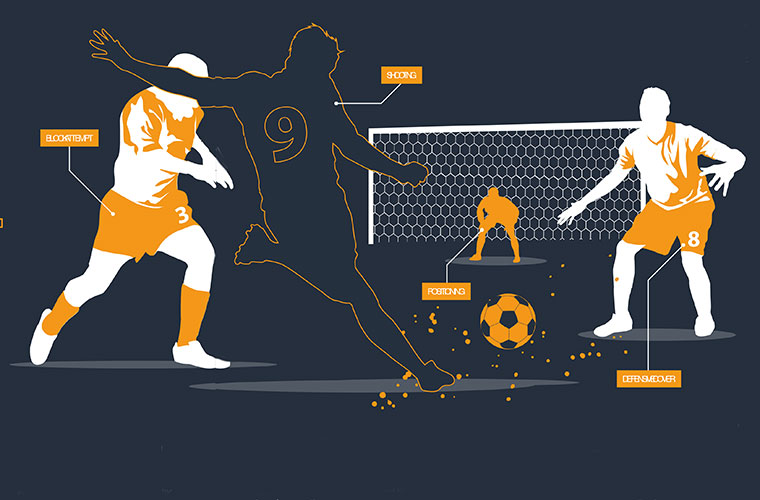For the last two decades, coaches have used data science in sports to assist their athletes to perform better.
They have been using big data to assist them in making split-second on-field judgments and relying on sports analytics to assist them in signing the “next big thing.”
Sports tagging may be a critical tool in assisting players and teams in optimizing their performances. The analysis and reports created by sports Tagging are as unique as the coaches who use them.
Code Windows might be as small as a few actions or as complex as hundreds of actions and tags. The amount of time spent tagging matches varies according to the complexity of the analysis. Match tagging may be used to tag whole teams, individual players, or both!
We’ll discuss some of the most innovative sports tagging services powered by artificial intelligence in this post, as well as the technology that powers them:
Demonstrate improvement in teamwork
After addressing areas of weakness and enhancing team methods, it is critical to demonstrate how to match tagging and analysis to boost performance. It is critical to understand what works and why – and equally critical to understand what does not work and why, and to communicate this to your people.
Demonstrating advances built on This instills team confidence in both players and coaches. If your squad can see how changes to game plans and methods are assisting them in improving their performances, they will remain focused and motivated, which will help establish trust in the coach.
Performance of the team
After labeling your matches, you may produce report pages that can be used to analyze performance. Metrics like home possession, goals, away possession, and penalties may be included in the reports. Additionally, the reports might include additional details such as assault and defense regions. Reports may paint a comprehensive picture of your team’s performance, strengths, and flaws.
Engaging Customers
Sports organizations can analyze digital engagement patterns, such as online sports viewing, to determine what and when people watch via app logins and online video views.
- They are using augmented reality to create more immersive experiences.
- They may mine sentiment from social media streams to ascertain what fans are thinking and then engage them via social networks using analytics.
- Social media has proven an excellent marketing platform for university teams looking to engage millennials and sell tickets through data-driven campaigns.
Customer interaction data may even be used in the stadium, where teams can analyze fan movements using electronic tickets or even fingerprints or retinal scans. More inventive teams are already using these strategies.
Perspectives on the opposition’s performance
While sports tagging is intended to analyze your team and player performances, it may also be used to analyze your opponents.
You may analyze their strategies and the success of their game plans and compare the effectiveness of your opponents’ game plans and strategies to your own.
If you see a team that excels in areas where your team falls short, you may learn from them and adopt some of their techniques. You may use statistics to determine the most effective strategies for your squad to fully defeat your opponents.
Along with reviewing your team’s performance in aggregate, it might be equally vital to analyze and acquire insight into your opponents’ efforts.
Enhance your coaching abilities
As a coach, if you utilize sports tagging to acquire insight into your team’s performance, gain insight into your opponents’ performance, use that knowledge to enhance your team’s performance, and explain the improvements, you may help grow and expand on your coaching abilities.
The more metrics you must suggest where your team needs to develop tactically, and your team’s strengths and shortcomings, the more targeted your coaching can be.
Enhancing Intelligence in the Back Office
All these sports analytics may assist a business in making operational changes in areas such as procurement, supply chain management, and logistics.
By utilizing intelligent data entry services in sports, businesses may enhance their human resource procedures and customer relationship management. Teams and associations may make critical product and service choices to help enhance the customer experience and optimize revenue.
Partnership Expansion
Sports are a multibillion-dollar industry founded on relationships ranging from sponsorship and advertising to player trade. Historically, when teams negotiated, they lacked sufficient knowledge, causing them to give up large sums of margin. Teams can now optimize these agreements and save millions of dollars by leveraging data from sports analytics tools.
Final Words
The use of data in sports will only increase as the deluge of data grows. A game may create over a million data points through wearable sensors, tagged equipment, and video tracking. That is just on the pitch; consider the amount of data that travels through the stadium and beyond. Sports tagging is already yielding game-changing effects as it mines fresh insights from all those numbers.

